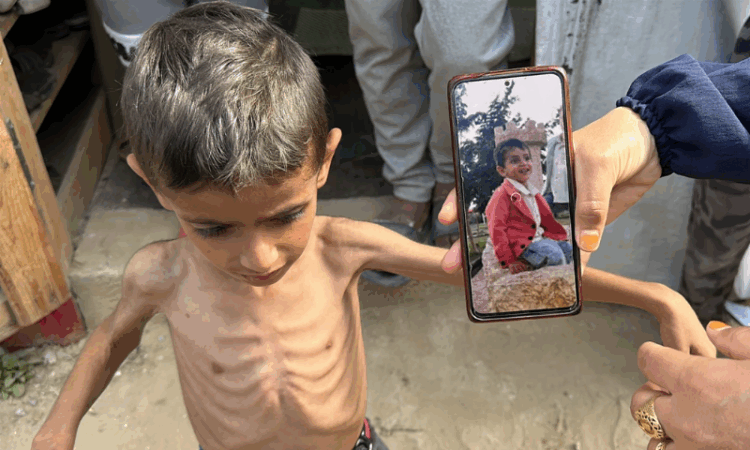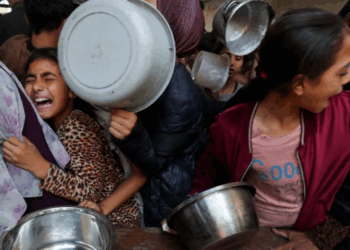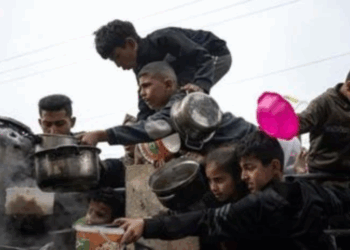Gaza, May 20, 2025: The United Nations has issued a grave warning that thousands of children in Gaza are at immediate risk of death, as Israel’s near-total blockade, now entering its twelfth week, pushes the besieged enclave into catastrophic famine.
Tom Fletcher, UN Under-Secretary-General for Humanitarian Affairs, told the BBC that 14,000 infants could die within the next 48 hours if the humanitarian crisis is not urgently addressed. “We need to flood the Gaza Strip with humanitarian aid,” Fletcher said, calling the situation “chilling.”
The blockade, imposed by Israel since March 2, had until this week completely halted the flow of food, medicine, and life-saving aid. On Monday, a limited convoy of just nine aid trucks was allowed in—the first since the siege began. On Tuesday, Israel agreed to allow 100 aid trucks, a figure which UN agencies slammed as woefully inadequate given Gaza’s scale of need.
“This is a drop in the ocean. The worst part is that this catastrophe is preventable,” said Philippe Lazzarini, Commissioner-General of UNRWA, speaking at the European Humanitarian Forum in Brussels. “If there is political will, the war can stop. The siege can be lifted.”
According to a UN-backed Integrated Food Security Phase Classification (IPC) assessment, over 93% of children in Gaza—roughly 930,000—are at risk of famine. At least 57 children have already died from malnutrition in recent weeks.
Akihiro Seita, UNRWA Director of Health, warned the situation is deteriorating “exponentially” and may soon spiral “beyond our control.”
Meanwhile, Israeli air and ground attacks continue across Gaza, killing dozens of civilians daily. On Tuesday, Israeli strikes destroyed the last operational well in Deir el-Balah, the final drinking water source for tens of thousands in central Gaza.
The Israeli army also bombed the Nasser Medical Complex in Khan Younis, damaging critical facilities including oxygen supplies and laboratories. In the north, the Indonesian Hospital remains under siege, with patients and medical staff trapped, as reported by Al Jazeera’s Hind Khoudary.
Other major medical centres—the European Hospital and al-Awda Hospital—have been bombed and largely rendered inoperable.
Tess Ingram, a UNICEF official, criticised a recent US-Israel aid distribution plan as unfeasible and inequitable. She said that while the UN previously maintained 400 aid distribution points, the new plan restricts distribution to only a few militarised locations in southern Gaza, leaving civilians to carry heavy aid loads for miles under life-threatening conditions.
Despite mounting international outrage, Israeli Prime Minister Benjamin Netanyahu stated Monday that only a “minimal” amount of aid will be allowed into Gaza, citing diplomatic and domestic political considerations. National Security Minister Itamar Ben-Gvir opposed any aid entry, saying it hinders Israel’s military goals while hostages remain in Gaza.
The Israeli military reported on Tuesday that it struck 100 additional “terrorist targets” in Gaza over the preceding 24 hours.
According to the Gaza Ministry of Health, the war has now killed at least 53,573 Palestinians and wounded 121,688 since it began on October 7, 2023.








